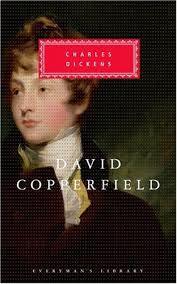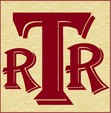Do Memoirs Have to Be Factual?
An odd question? Perhaps.
Before continuing, just a quick word regarding modern day definitions. I have noted people now frequently use the term ‘memoir’ to include autobiography and biography as well as memoir. The difference? Autobiography is where the author is telling their own life story. Biography where someone recounts the life story of another person. Memoir is, as a rule, where the author records a series of events they have experienced (e.g. selected occurrences rather than a life history). Personally, I still favour the use of all three definitive terms but readily acknowledge, and accept, others may prefer to simply refer to all of them as memoirs.
Back to the question posed. If you are going to refer to your book as a ‘Memoir’ then there is no question the answer is a resounding YES. It would be misleading and unfair to readers if everything shared in the book were not true. The fact they have selected the book is indicative of their desire to read about true life events rather than fiction.
Is there an alternative to writing a factual memoir? Yes, such books are, these days at least, usually referred to as ‘Biographical Fiction’. There can be no mistaking the intent. A reader selecting this genre will be looking for an entertaining read that has elements of truth or is partly based upon truth. The term itself should avoid any misunderstanding as to a book’s content.
 ‘Biographical Fiction’, autobiography and memoir are included by default, is not a new concept. In the past such books tended to be simply described as ‘Fiction’. Charles Dickens’s book ‘David Copperfield’ is well known for the fact that he based parts upon his family experiences. For example, the character of Mr Micawber is based upon his own father. And, of course, we cannot miss the similarities between David Copperfield’s and Dickens’s struggles to eventually become successful authors. This is certainly only one of many examples that may be found in past ‘classical’ writing. Many established authors very evidently drew upon their own experiences and observations for the creation of characters and situations in their stories.
‘Biographical Fiction’, autobiography and memoir are included by default, is not a new concept. In the past such books tended to be simply described as ‘Fiction’. Charles Dickens’s book ‘David Copperfield’ is well known for the fact that he based parts upon his family experiences. For example, the character of Mr Micawber is based upon his own father. And, of course, we cannot miss the similarities between David Copperfield’s and Dickens’s struggles to eventually become successful authors. This is certainly only one of many examples that may be found in past ‘classical’ writing. Many established authors very evidently drew upon their own experiences and observations for the creation of characters and situations in their stories.Why do some authors opt for biographical fiction rather than autobiography, biography or memoir? Do they consider the truth would be insufficiently interesting or entertaining for a reader? Do they feel their life story needs enhancing? Do they wish to conceal some facts? It could be for a variety of different reasons; I am sure you could come up with many more. Why did I opt for this format in one of my books? Up to that point I had primarily written autobiographically with some biographical content. However, when it came to my maternal grandparent’s dramatic experiences I considered it would make a far more engaging read if these events were interspersed, or enhanced, with some fictional drama. Nonetheless, I believed it important these should draw, and guide, the story into the realities and truth of what actually occurred. There were primarily two reasons for my decision. First, though the events would in themselves make for an interesting read, to simply record them alone would have resulted in a rather short book. Not a fault in itself but I felt the story deserved to benefit from being encompassed in a full length novel. Second, I do not have all the factual details and had to surmise some of the occurrences from snippets of conversation and the few accounts presented to me. I therefore felt the need to use my imagination, not in total wild abandon but partly based upon what I knew of the participants. My book ‘Peter’ is the result. I estimate approximately one third is factual with the remainder being guessed at or totally fictional in order to bring the events to a conclusion. By the way, the end result is factual.
So how do you go about developing a biographical fiction book? I must point out I am not a trained professional. The suggestions that follow are purely based upon my own writing and reading experience.
Obviously, first decide upon which events or lives, if you plan to write a full epic, you wish to base your story. I suggest before launching into it, you carefully consider which format will best support what you want to share. It is easy to get carried away with the idea of writing a bestselling novel when in truth a memoir would suit the matter better. Once you have selected the event(s) you will need to determine exactly what you want included and, perhaps more importantly, what you do not want to include. Subsequently the usual story format should be considered e.g. beginning-middle-end. If possible, I suggest you open, and end, with something based upon fact. After all, our experiences, if worth sharing, do have a start and end which, in themselves, we consider merit the telling. Of course you may enhance these with some fictional content but it would help if the essence is based upon truth.
Once the beginning and end have been defined you will have to turn your thoughts to the middle, often the bulk of a book. Though much of this will undoubtedly be fictional I suggest it would, again, be best if some of it is based upon fact. Having suggested all this, it may be the story you are telling has sufficient truth to carry it through the whole length of the book and that you are simply choosing to add some fictional detail to make it an easier, or more entertaining, read.
One word of advice: when adding purely fictional elements ensure you carry out all necessary research. Make sure of your facts. Imagination is fine and yes you can let your mind fly where it wants but you also need your book to have the sense and feel of authenticity. For example, in my book I needed to refer to various medical conditions. I could have simply run off and written my ideas of how I thought, or assumed, these conditions effect people. That, as I discovered, would have been a very big mistake. I sought information from medical books and on the internet and am very glad I did. It turned out some have symptoms I could never have guessed at. I also had to research other topics, such as secret societies, the occult etc. It really was all very interesting and I did have to fight the temptation to immerse myself in research and consequently fail to get the book completed. End result? Hopefully an interesting, informative, entertaining read.
Just to harp back to Charles Dickens’s David Copperfield. I enjoyed reading it and wonder if part of that had not been due to the fact I had known part of the story is based upon truth. Of course the same may apply to many other books but I am not here to discuss English Literature.
I hope you have found my thoughts and ramblings of interest and help. Writing is a privilege as well as a joy and sharing stories, true and fictional, is exciting. Please write in whatever style suits you best but bear in mind the reader’s experience and do your utmost to make this the best possible. Never know you may end up with a committed readership and fan base. I wish you every success.
Published on September 26, 2016 10:53
No comments have been added yet.



